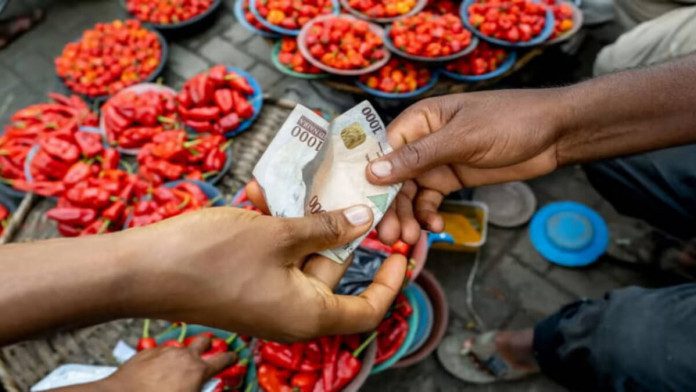News in Brief:
– A recent decline in the price of tomatoes and pepper has elicited mixed reactions from farmers, traders, and consumers across Nigeria.
– While some are welcoming relief from exorbitant prices, others are struggling due to overproduction and market surplus.
Farmers, traders and consumers alike have expressed mixed reactions over the recent crash in prices of staple vegetables, like tomatoes and pepper in the country.
For some, the situation is a welcome relief from the exorbitant costs the commodities commanded just a month ago.
However, for others, it is a ruinous situation as overproduction has caused a market surplus. Consequently, the glut has forced them to reduce prices to avert spoilage of the highly perishable food items, thereby negatively impacting expected earnings.
A month ago: soaring prices
Before October 2024, prices of the commodities had witnessed a massive surge in the past month, with more than 200% increase from current prices in some cases. According to market research, a custard bucket of tomatoes sold for between ₦10,000 to ₦12,000 and even up to ₦17,000 in select major cities of the country.
However, current prices of same measurement now sell for between ₦2000 to ₦6000 in most parts
For Mrs Oyetola Aduke, a civil servant, who lives in the Abule Ado area of Lagos, the situation is a breath of fresh air from the biting hardship caused by food inflation.
She noted the nutritional benefits of tomatoes, especially as powerful anti-oxidants, and the fact that it is a main ingredient in various dishes in her household, bringing back hitherto ignored delicacies.
However, Musa, a pepper and tomatoes hawker, said the experience has not been totally bad, since he now makes rapid sales off his cart, and noted the availability of the commodities. Although, he admitted that he wasn’t making as much money as he made weeks ago, when the items were on the high costs side.
Regional variations in price reductions
In other cities like Port-Harcourt and Benin, prices of the items have not recorded significant reduction.
“We used to buy these big pieces of about five tomatoes fruits for a ₦1,000, but it’s now ₦700 to ₦800, so the decrease in price hasn’t been much”, Stella, a resident of Port-Harcourt revealed.
She added that in certain places near the oil mill market area, the commodities were sold for much less as it was the entry point for food items, from the North, into the state.
Similarly, Rebecca, a student in a tertiary institution in Ekpoma, Edo state, said the price difference was not significant because she still bought tomatoes and pepper at almost same prices as when they were generally higher.
Farmers in Gombe State burdened by glut
Meanwhile, farmers in Gombe state, a major tomatoes and pepper producing area of the country, are reportedly groaning over the glut of the items, as lack of processing centres have driven them to sell their wares at giveaway prices to prevent incalculable loss due to wastage.
Reports indicate losses of ₦9,000 per basket of tomatoes, ₦30,000 per bag of bell peppers, and ₦34,000 per bag of hot peppers, in comparison to prices a fortnight ago.
Effectively, the prices of tomatoes and bell peppers have plummeted significantly in the state. A large basket of tomatoes, which sold for ₦10,000 just two weeks ago, has now slumped to ₦1,000. Bell pepper (tatashe) has also seen a dramatic fall in price, with a bag now costing ₦10,000 against ₦40,000 two weeks earlier; a 75% drop. Scotch bonnet (hot pepper) prices has dropped by over 65%, with a bag now going for ₦16,000 against ₦50,000.
Post-harvest losses remains a major challenge
Recall that in our previous article, we mentioned a report that put the percentage of spoilage of tomatoes in Nigeria, as a result of post-harvest loss, at 58%. Others like peppers and Okra recorded losses of over 52% and 48% respectively.
Experts have repeatedly decried this situation over time, blaming the situation of post-harvest loss as a significant drain of revenue for the farmers, impacting their livelihood negatively. They have also bemoaned the huge loss that should have accrued to national coffers due to the situation.
Subsequently, calls have been made by relevant stakeholders to boost the country’s food processing capacity, in order to mitigate post-harvest losses.
According to the CEO of Produce Export Development Alliance, (PEDA), Adetiloye Aiyeola, the need for standard processing facilities in the country can not be over-emphasised.
Aiyeola affirmed that the situation highlights the urgent need for interventions in the form of better post harvesting systems, access to finance and better support.
“Nigeria has the potential to be self sufficient in tomato production, but we must address the structural inefficiencies that prevent our farmers from fully realising their potentials,” he said.



